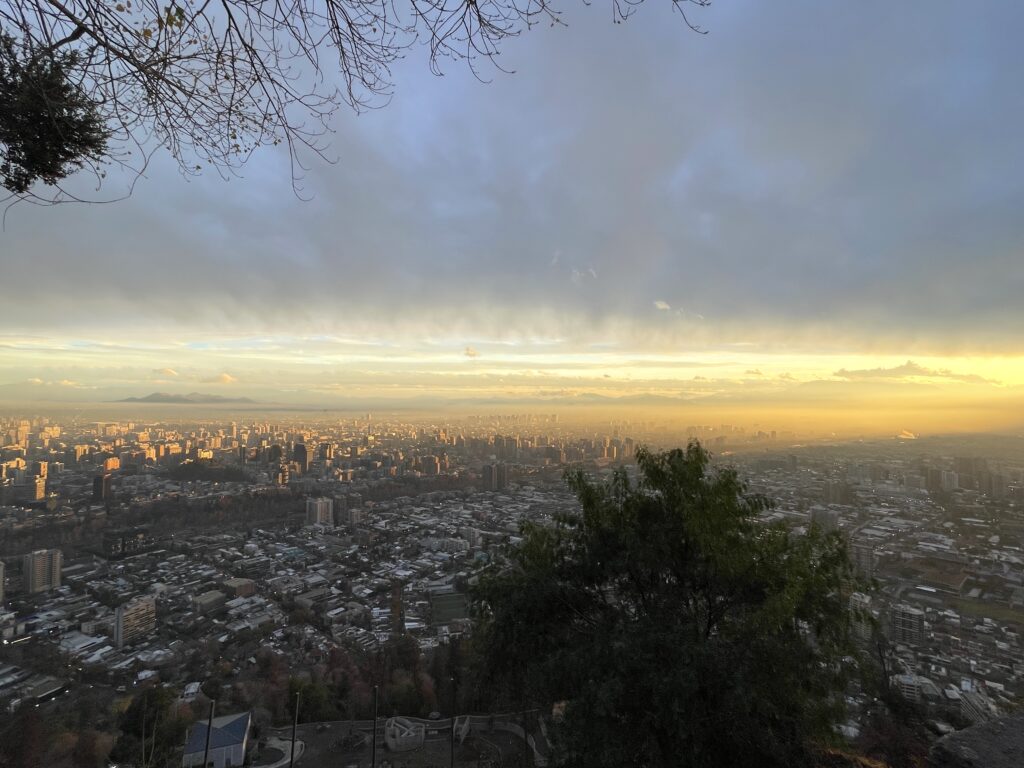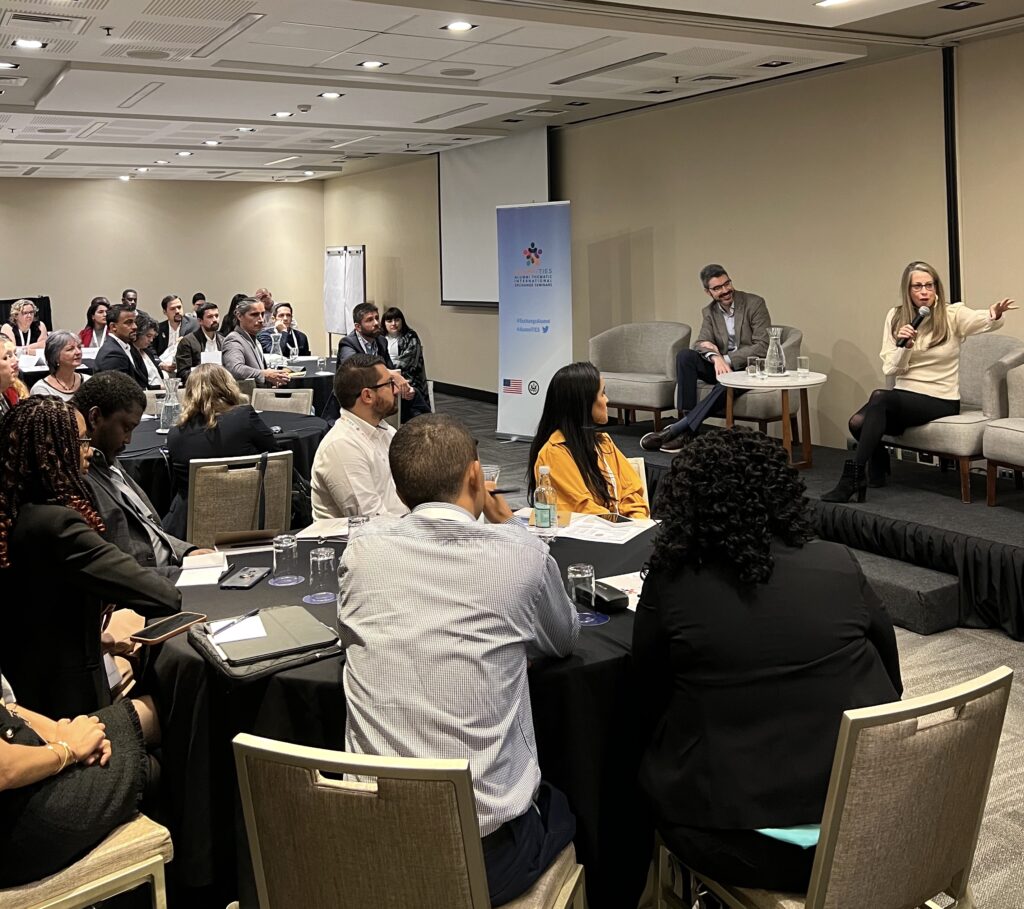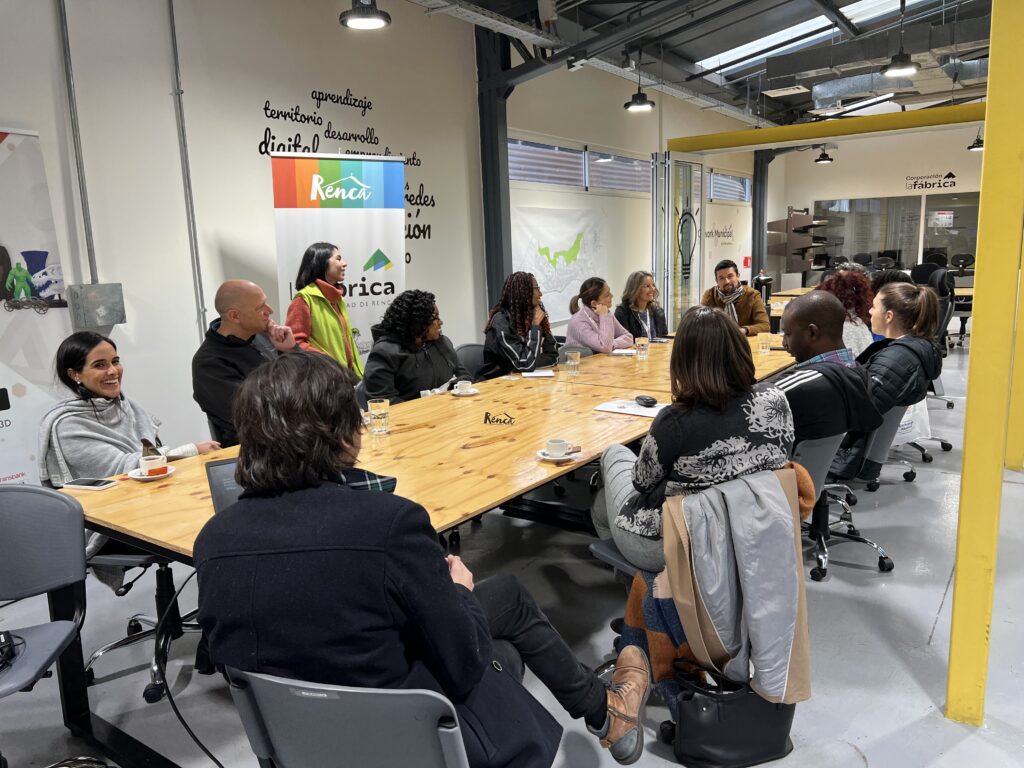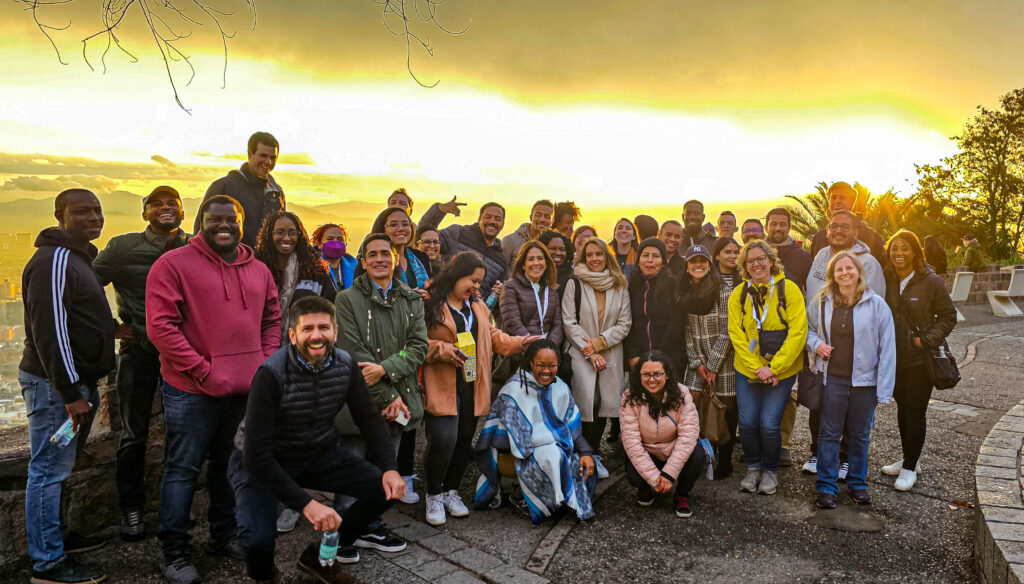-
What We Do
- WHERE WE WORK
-
About Us
 Welcome Message from Carol Jenkins
Welcome Message from Carol JenkinsFor more than 90 years, World Learning has equipped individuals and institutions to address the world’s most pressing problems. We believe that, working together with our partners, we can change this world for the better.
On my travels, I’ve had the opportunity to meet with many of those who have joined us in this mission. In Baghdad, we’ve trained more than 2,300 Iraqi youth who are already giving back at home. In London, our partners in the TAAP Initiative strongly believe that we are all responsible to practice inclusion. And in Vermont, our Experiment in International Living and School for International Training participants prove every day that they have the tools and the determination to change the world.
Please join us in our pursuit of a more peaceful and just world.
- Get Involved
Media Center > Story
Building climate resilient and inclusive communities in the Americas
December 7, 2023

The United Nations Climate Change Conference, or COP28, is currently taking place in Dubai from November 30-December 12. As countries from around the world focus on solutions to combat the climate crisis, we’re sharing a story about an Alumni Thematic International Exchange Seminar (TIES) held in May that focused on stopping the effects of climate change across the Americas.
This article originally appeared on the Alumni TIES blog on June 29.
Nestled in a valley within the Andes mountains, Santiago, Chile, was a scenic and welcoming host city to ExchangeAlumni who gathered for an Alumni Thematic International Exchange Seminar (TIES) on “Municipal Environmental Resilience and Inclusiveness” in May 2023. This group of 39 alumni came from 27 countries across the Americas to collaborate and share ideas on building resilient communities and mitigating the effects of climate change across the region. The group, consisting of academics, nonprofit leaders, government officials, and activists discussed various facets of climate change, including renewable energy, food systems, youth engagement, and environmental justice.

To open the seminar, U.S. Ambassador to Chile Bernadette M. Meehan gave remarks emphasizing the importance of a robust ExchangeAlumni network in bringing together leaders from around the world to address pressing issues such as climate change. Building on Ambassador Meehan’s reflections on networking and multi-sectoral partnerships, the first participant-led panel of the seminar focused on “Climate and Environmental Justice Strategies and Solutions in the Americas.” This panel discussion set the tone for the seminar — how to center climate justice in diverse careers and communities. In the afternoon, the group participated in an engaging conversation with Jordan Harris, an expert consultant with the Inter-American Development Bank for the Chilean Ministry of Environment. Mr. Harris discussed Chile’s policy to implement municipal climate action plans across the country. Participants reflected on this innovative policy by asking questions on its implementation and reception from local governments and how it can be further scaled throughout the Americas.
During the three-day seminar, ExchangeAlumni participants led sessions on a broad range of topics such as access to clean water, renewable energy, sustainable food systems, and engaging with community stakeholders in environmental management. Small group discussions allowed for intimate conversations and contributions from all attendees. One of the breakout sessions illustrated how the ExchangeAlumni network can amplify projects and initiatives, especially with young people. While many sessions focused on data-driven analysis, the breakout session on “Hurricane Survival Practices and Traditional Ecological Knowledge” utilized storytelling and reflection, as participants shared deeply personal experiences with climate disasters that they had experienced and how these events shaped their understanding of climate change. The agenda for the week covered a broad array of climate related topics, but each session was tied together with an overarching focus on supporting people from disproportionately affected communities to become leaders in developing solutions to curb climate change.

In addition to the sessions designed and facilitated by participants, Chilean experts were invited to share their work with smaller groups. An off-site visit to La Fábrica, an innovation center located in an abandoned Walmart in the Municipality of Renca highlighted the importance of providing an inclusive space for residents to share and generate ideas to improve economic, social, and urban development initiatives. Javier Morales, the Executive Director, told the group that La Fabrica is “a factory of ideas.” Another group of participants met with Karina Vargas, coordinator of the Indigenous Peoples’ Rights Program at Observatorio Ciudadano. Ms. Vargas wove her own personal background as an Indigenous woman with her professional work of practicing law in defense of Indigenous communities in Chile. Her presentation provided insight on the universal fight experienced by many Indigenous communities over rights to land and resources. Other experts included Antonia Berrios Bloomfield of FIMA, Dominique Hervé Espejo of Universidad Diego Portales Law School, and Fernando Coz of Fundación Chile Lagos Limpios. By including local Chilean voices in the conversation, participants learned about how NGOs, lawyers, and government work together in Chile to advance climate-centered policies and safeguard the environment for future generations.
Experiencing the cultural, historical, and natural sites of Santiago was a highlight of the seminar. Participants bundled up in their coats to see the historic sites of Santiago, including the Plaza de Armas and Palacio de la Moneda. After riding the funicular to the top of San Cristóbal Hill, a remarkable and memorable view of Santiago greeted the group, just as the skies cleared at the end of an overcast day. That sunset is one that the group will never forget. On the last night, as is tradition with Alumni TIES seminars, participants reflected with one another about the week’s events and further strengthened their friendships at the closing dinner.

The social events, conversations, and educational sessions showed that this group formed strong friendships in a short period of time. Participants continued to share stories and memories after the closing dinner and sent messages of support and well wishes to one another when arriving home. Although tackling the issue of climate change may seem daunting, this group left the seminar with a passion to work together on projects to contribute towards a greener and more sustainable world.
Alumni TIES is sponsored by the U.S. Department of State with funding provided by the U.S. Government and supported in its implementation by World Learning, in partnership with the Office of Alumni Affairs of the Bureau of Educational and Cultural Affairs (ECA).





